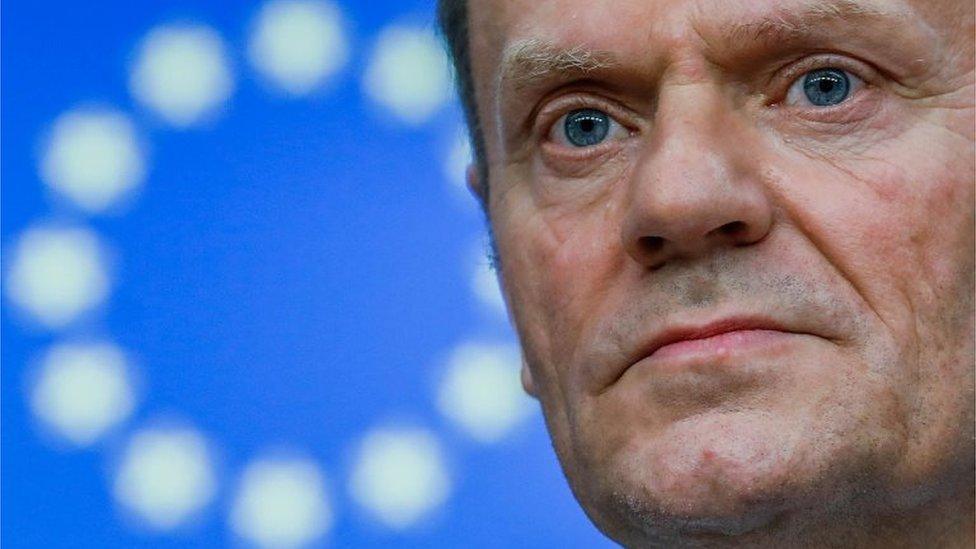EU summit: Brexit casts a long shadow over Europe
- Published
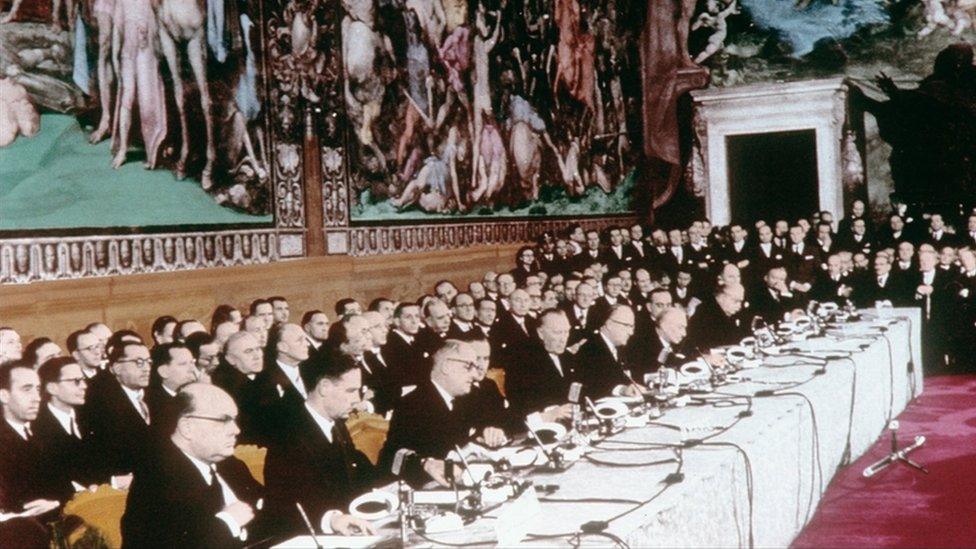
Ministers for the six-member European Community sign the Treaty of Rome, 1957
When the idea of an EU celebration of the 60th anniversary of the founding Treaty of Rome in the Italian capital was first mooted it must have seemed like a good idea.
Many European politicians regard it as an established fact that the European Union is one of history's primary drivers of peace and prosperity.
That is why many European politicians continue to regard Brexit as an act of self-harm by the UK.
And it is why celebrating the signing of the treaty that created the original six-member European Community is a natural way of marking its continuing historical significance.
French President Francois Hollande put that traditional view of the EU after he and his fellow European leaders - minus the UK's Theresa May - spent a lengthy session negotiating what form of words they might use to mark the occasion two weeks from now.
Mr Hollande said it was all about unity and values and asked one reporter: "What do you think Europe would be like without the union?"
A critical moment in Europe
The problem is that the timetable for Brexit now casts a long dark shadow over those celebrations.
Mrs May's self-imposed deadline of the end of March for triggering Article 50 of the Lisbon Treaty coincides more or less exactly with the timetable for the anniversary celebrations, which reach a climax on 25 March.
Britain presumably never intended the two events to overlap, but the coincidence provides an intriguing snapshot of a critical moment in Europe.
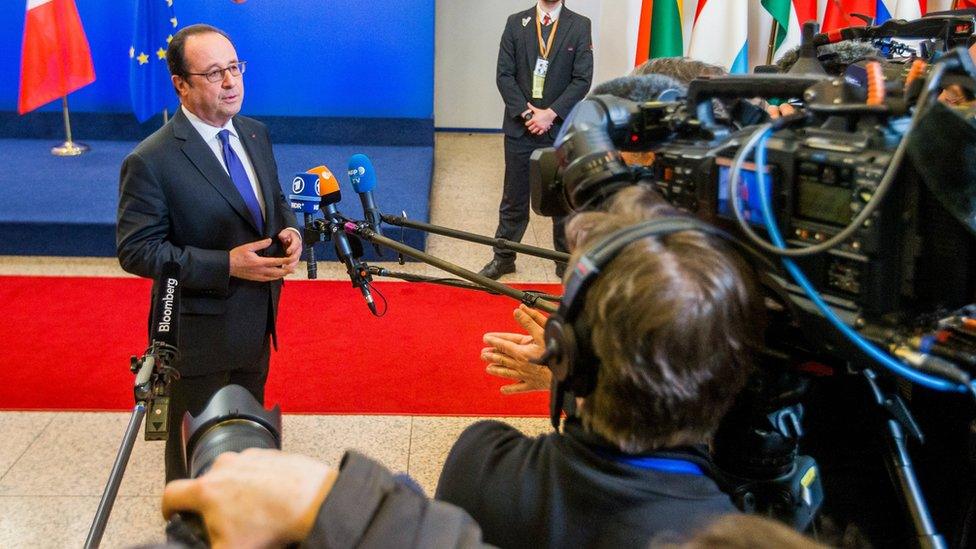
Mr Hollande told reporters: "What do you think Europe would be like without the Union?"
The point is, of course, that an organisation that has known nothing but steady expansion over its 60-year history is about to lose a member state for the first time.
EU insiders will point out that Greenland, which is an administrative area of Denmark, left in 1985 - but this is different.
It is a confidence-sapping thought for an institution which has grown accustomed to seeing itself as the high table of European politics and grown used to the idea that it is an institution that other countries are desperate to join.
There is still a waiting list, of course - mainly in the Balkans - even as the UK heads for the door marked "Exit".
Grand visions or wishful thinking?
Perhaps because it is unprecedented, there is no big idea on offer from the European Commission about what should be in the celebratory declaration - just a palette of five vague outlines of how the EU will work in the future.
They really boil down to alternative levels of tinkering in plans for future integration, from leaving things more or less as they are to taking a great leap forward into further centralisation.
The moment somehow does not feel right for grand visions.
There is still scope though, it seems, for a little wishful thinking.
As the Brussels summit wrapped up, European Commission President Jean Claude Juncker said: "I don't like Brexit because I would like to be in the same boat as the British; the day will come when the British will re-enter the boat, I hope, but Brexit is not the end of Europe."
Those remarks will no doubt raise eyebrows in London, where the UK government has yet to trigger the departure process, but it does demonstrate that there are still romantics in Brussels who hope Brexit will not happen, even if their number is rapidly dwindling.
The UK already feels a little semi-detached in its relationship with the EU and that feeling is only going to intensify once Article 50 has been triggered.
A 'multi-speed' Europe
In Rome on 25 March, we will get a sense of how the EU remainder states see their future. There is talk of a "multi-speed" Europe, which is a slick way of saying that some member states are more in favour of further integration than others.
And what will the future be like without the perennial Eurosceptic-tinged foot-dragging of the British?
Brussels provided something of a straw in the wind when Poland fell out with its partners over the decision to reappoint the former Polish Prime Minster Donald Tusk to a second term as President of the European Council - Mr Tusk is seen as an enemy by the current government in his home country.
Poland lost the argument, of course, but then retaliated by refusing to endorse the summit statement.
It was a reminder that the UK was never the only source of problems in the EU and an indication that as one member of the awkward squad departs, a candidate member may be waiting to take its place.
- Published10 March 2017
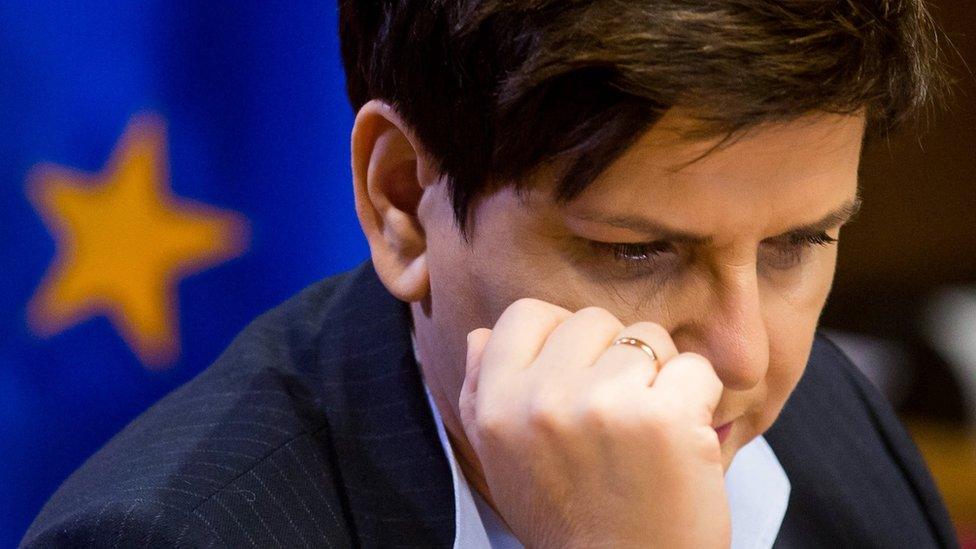
- Published9 March 2017
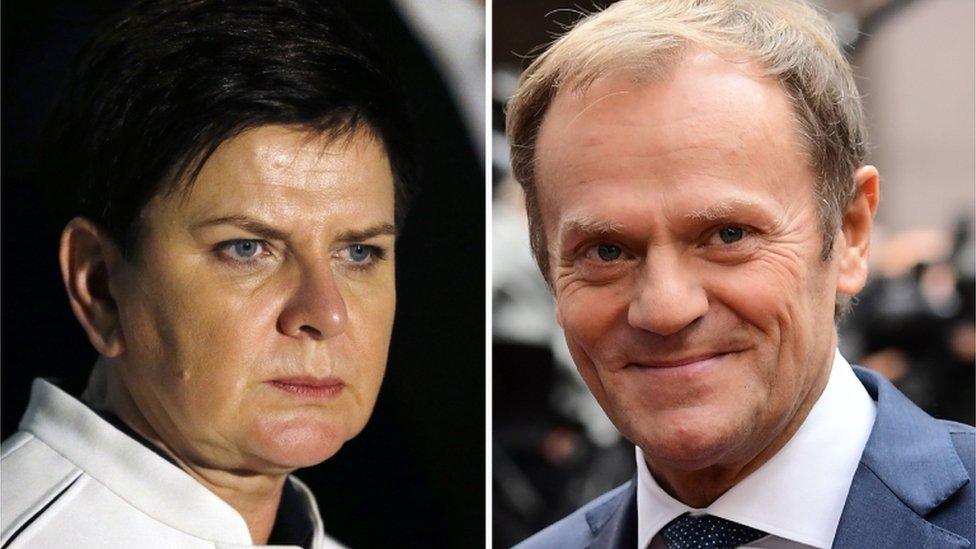
- Published10 March 2017
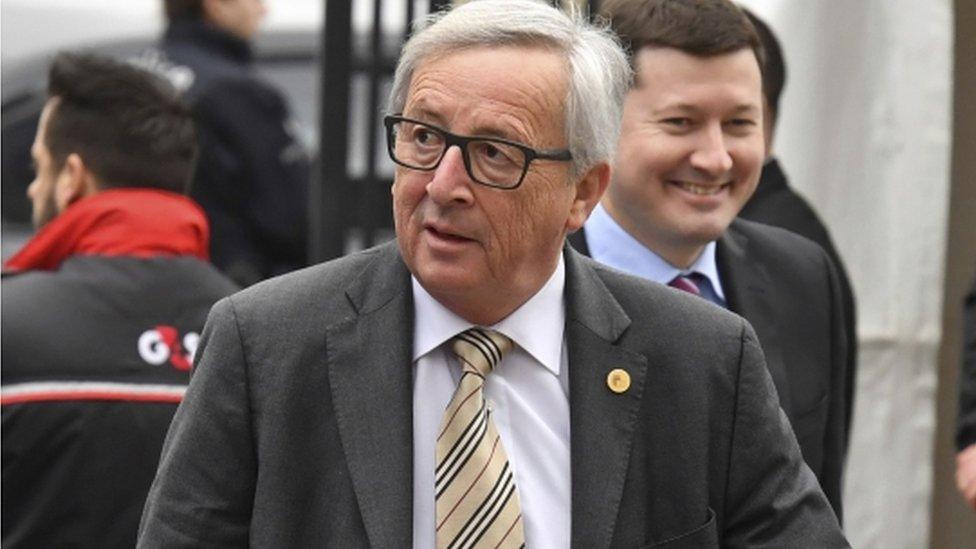
- Published9 March 2017
